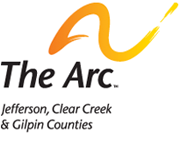Ethics in Advocacy
There is not a Code of Ethics or Professional Responsibility for special education advocates. Advocates have nothing to look to for guidance and there in no governing body to oversee their practice. However, good advocates understand that the professional respect of the IEP Team is the most effective way to assist parents in achieving an appropriate education for their child.
The Arc – Jefferson, Clear Creek & Gilpin Counties’ Educational Advocates believe in the following:
Advocates facilitate the IEP process. Advocates must set an example for the entire IEP team. They must be a role model of behavior for the parent. Challenging school experts, demeaning school staff, or being inconsiderate or impolite, will not advance a child’s cause. Good advocates ask questions and make valuable suggestions to advocate for a child. It is okay to disagree. It is not okay to put down or verbally attack someone.
Advocates try to reduce existing barriers between the parent and the school. An advocate’s goal is to bring the school and the parent closer to agreement. Good advocates explain to parents that negotiation is part of the IEP Team process – and a part of life!
Advocates are willing to admit mistakes and to apologize. No one is perfect. We all make mistakes. Good advocates are not afraid to say they are sorry when they make a mistake.
Advocates listen. Advocates listen to everything that others say. Sometimes, what others do not say is most important. Good advocates repeat and paraphrase what they have heard to avoid misunderstandings. They ask others to verify that they understood correctly. Good advocates ask follow-up questions. They do not interrupt even when they are faced with rudeness and discourtesy.
Advocates know the art of negotiation. Negotiation is not a sign of weakness or that the parent’s position is not valid. Negotiation is an art that good advocates polish to a fine finish. Successful negotiations allow everyone to come out of the IEP meeting feeling like winners.
Advocates understand special education law. The law is not a static entity. It changes every day through court decisions and other types of clarifications. Good advocates know that understanding the law is different than quoting the law. They know the law but they understand that it is often ineffective and counterproductive to quote it.
Advocates treat others the way they would like to be treated. No one likes surprises. Members of IEP Teams do not respect or trust advocates who drop bombshells. Taking the team by surprised is likely to backfire. Making the IEP meeting a war of wits does not benefit the child nor does it facilitate the process for the parents.
Adapted from Wrightslaw Special Ed Advocate Issue 464; 12.02.2008


